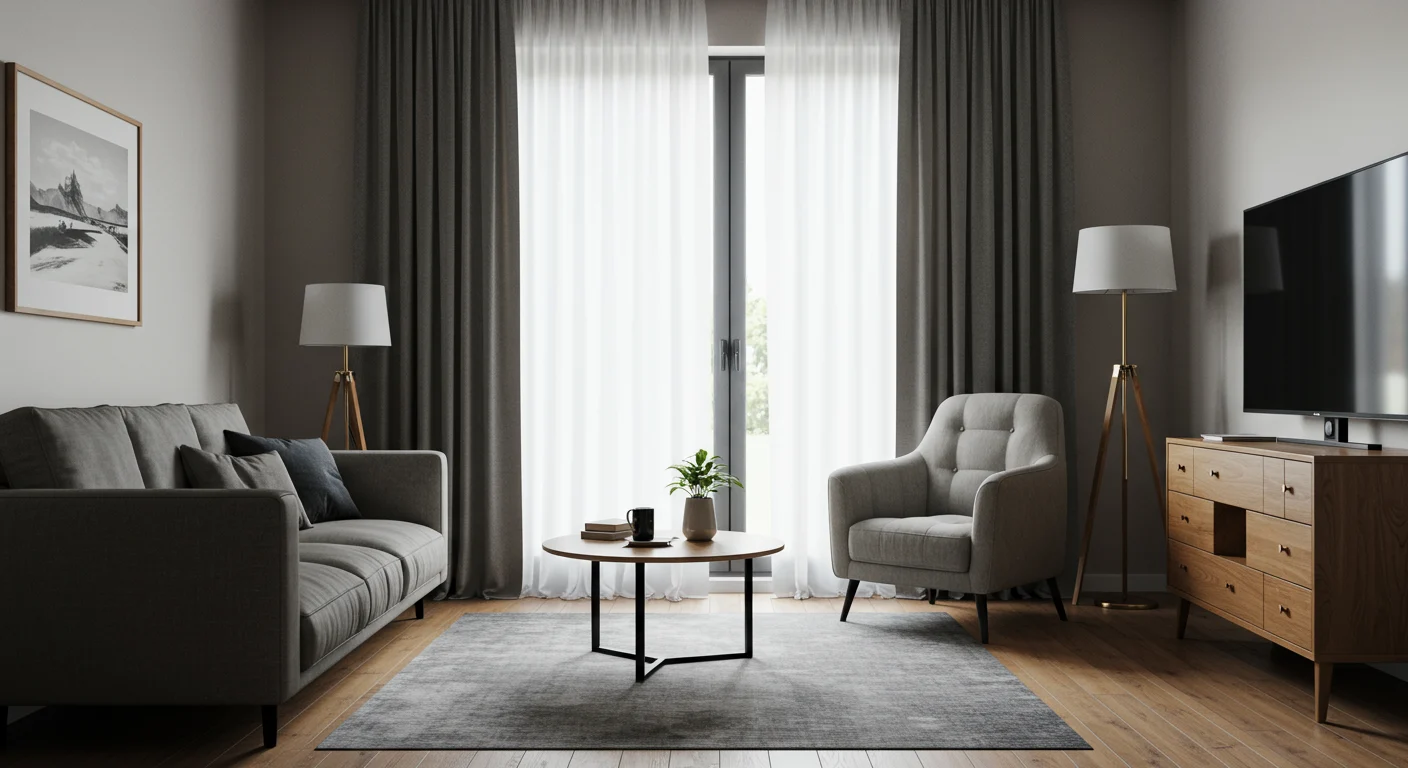
Beyond Darkness: Do Blackout Curtains Save Energy?
Short answer first: yes, they can. But they don’t work like a magic on/off switch. Blackout curtains help by blocking sun before it heats the room and by slowing the sneaky drafts that steal warmth in winter. If you’ve been wondering, Do Blackout Curtains Save Energy, the real win comes from using the right fabric, fitting them correctly, and actually closing them at the right times. Here’s the thing—I’ve seen people hang gorgeous panels, leave them cracked open, and then complain nothing changed. That gap at the sides? It’s where comfort (and dollars) escape.
How blackout curtains save energy (in plain English)
Three kinds of heat movement try to mess with your comfort: radiation (sunlight heating your room), conduction (heat sliding through glass), and convection (air circulating at the window). Blackout curtains tackle the first and nudge the other two. The darkening layer blocks a big chunk of solar radiation so your room doesn’t warm up as fast on sunny days. A thick, multi-layer panel adds a small insulated buffer against conduction. And when you seal the curtain edges, you slow the convective “chimney” that pulls warm room air across cold glass in winter. That combo is why, asked flat-out, Do Blackout Curtains Save Energy, the honest answer is yes—especially on windows that get punishing afternoon sun or winter drafts.
Okay, but how much money are we talking?
Let’s keep it real. Across a whole home, most people see modest but noticeable reductions—think 5–10% off heating/cooling energy when you cover the worst windows and actually use the curtains daily. In a single, sunny room, the difference can feel big: cooler by a few degrees in summer afternoons, warmer by a couple degrees on winter nights. If your summer A/C spend is about $150 a month, shaving $10–$25 during peak months isn’t wild at all. Could it be higher? Yep—older single-pane windows or west-facing glass in hot climates can push savings higher. Could it be lower? Also yes if your climate is mild or you forget to close them. So when someone asks, Do Blackout Curtains Save Energy, I say they trim waste in the rooms that need help most, not the whole bill by 30% overnight.
Where blackout curtains shine—and where they underwhelm
They shine on big, sun-exposed windows, especially west and south orientations, and on older frames that leak air. Bedrooms and nurseries do great because you’ll close them during sleep anyway. They’re less dramatic on small, shaded, north-facing windows in mild climates. And if you like open views all day, your savings will match your habit. It’s not complicated: to truly answer, Do Blackout Curtains Save Energy, think “yes, when closed at the right times.” Morning sun? Close before the room heats. Winter nights? Close at dusk to trap warmth.
Setup that actually moves the needle
Here’s the fun part: tiny tweaks make a big difference. Go wider and higher than the window—ideally ceiling to floor, with the panel kissing the floor to reduce airflow. Use wraparound rods so the fabric curves back to the wall; that kills light leaks and drafts at the sides. If you’ve got a gap at the top, add a simple cornice or even a tight valance to stop warm air from washing across the glass. Side magnets or discreet Velcro dots along the wall edge create a pseudo-seal. And if you’re serious, pair a blackout panel with a separate thermal liner. That way, when someone asks, Do Blackout Curtains Save Energy, your installation lets you say, confidently, “Mine do.”
Blackout vs thermal curtains vs cellular shades
Not all “blackout” is “thermal.” Blackout means light blocking; thermal adds insulation through thicker weaves, liners, or foam backings. Many panels do both, but check for a triple-weave fabric and a solid liner. Cellular (honeycomb) shades usually beat curtains on raw insulation (their air pockets are excellent), but curtains can beat them on blocking harsh sun and glare. If you’re choosing based on the question Do Blackout Curtains Save Energy, know this: a good thermal-back blackout panel is your best curtain-style bet, while cellular shades are the efficiency champ if you’re open to a different look.
Costs, payback, and the quick gut check
Quality blackout panels typically run $40–$120 per window, more if you need custom sizing or multiple layers. In a room that’s costing you an extra $10–$25 a month during peak seasons, payback can land in the 1–3 year range. If you rent, they’re a rare efficiency upgrade you can take with you. If you own, they’re also a comfort upgrade you’ll feel on day one. So if you’re weighing Do Blackout Curtains Save Energy against their price, the math leans yes for sunny rooms and older windows, and “nice-to-have” for mild, shaded spaces.
A couple gotchas (learned the hard way)
Condensation happens when warm, moist indoor air hits cold glass behind a tightly sealed curtain. Crack them open daily to air things out, and don’t block supply vents. Dark rooms need a routine—open them when the sun moves to keep life, plants, and your mood happy. And remember: if you shut out daylight and flip on a bunch of lights, you can chip away at the gains. People ask me, Do Blackout Curtains Save Energy in winter too? Yes, especially at night, but give the window a breather in the morning.
Bottom line (and what I’d buy)
Blackout curtains can absolutely trim energy waste—in the right rooms, with the right install, and with a simple habit of closing them at smart times. If the question is Do Blackout Curtains Save Energy, the practical answer is: yes, and you’ll feel it most in sunbaked afternoons and chilly nights. If you want to skip the guesswork, I pulled together the blackout and thermal curtain picks that actually perform—see my favorites on Consumer's Best. Friendly, no-hype recommendations, and you’ll know exactly what to expect before you hit “buy.”



